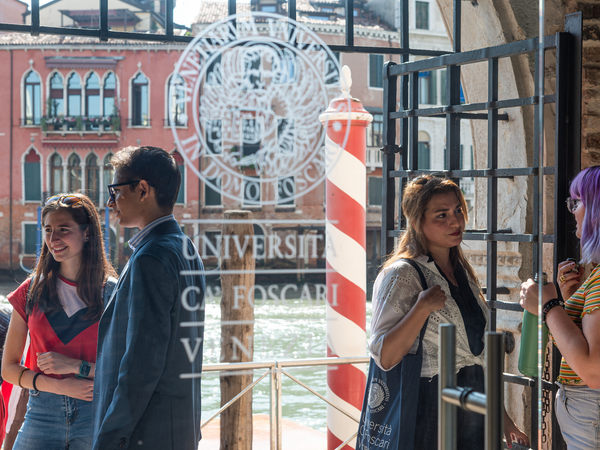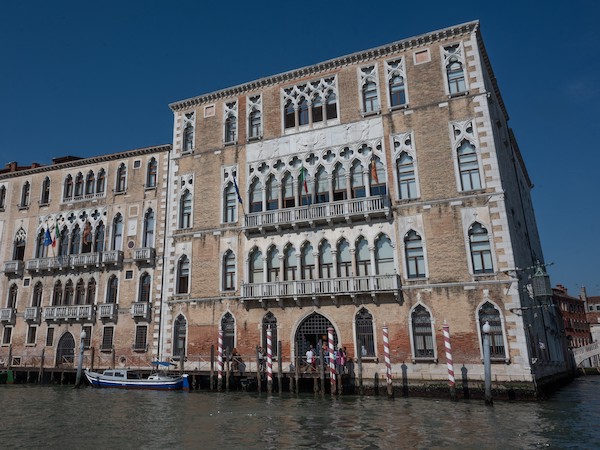The victory for ‘Leave’ in the British referendum puts an option which was considered to be “merely theoretical” into practice. Fabrizio Marrella, Professor of international and European law in the Department of Economics at Ca’ Foscari, and member of the Research Institute for International and European Law (Panthéon Sorbonne University, Paris), explains the context and the consequences of Brexit.
He claims that the result will cause Great Britain to become increasingly more isolated in terms of global competition, fearing “hefty” consequences for businesses. In the meantime, for the 2016/2017 academic year, 35 British students will be attending Ca’ Foscari and 87 students from Ca’ Foscari will head to the UK through Erasmus partnerships with British universities.
Professor Marrella, where is the possibility of leaving the EU stated?
Article 50 of the Treaty on European Union assigns each Member State the power to decide to withdraw from the European Union, in accordance with its own domestic constitutional norms. Given that there is no requirement to provide motivation for an “exit”, and by simply calling for them to respect their own constitutional rules, the norm gives Member States full discretion to exercise their right to withdraw
Does Brexit need to be approved by the EU or by other Member States?
Approval from Member States for the withdrawal is not necessary, and they cannot in fact prevent it. Up until now it was merely a theoretical option, a procedure which, although legitimately in place in the Treaty on European Union, no-one would ever have thought would be implemented. In the constitutive treaties in force prior to the Treaty of Lisbon the “exit” procedure hadn’t even been contemplated. It was claimed that the “community” process of construction and examination was by then irreversible, and that the “United States of Europe” - furthermore also an English idea, of Churchill’s - would have represented the pinnacle of that process of “integration towards law” in the medium term.
Have there been other crises like this one?
Not as serious. There have of course been various periods of crisis during the history of Europe’s establishment. Among the more serious, we only need to think back to De Gaulle’s France, where he strongly disagreed with certain political choices made by the then European Economic Community (EEC), and stated that “the Treaties are like roses and young girls: they last while they last”, shaking up and (temporarily) jeopardising the construction of a common Europe. The “empty chair” policy followed on from here, that is, France abstained from participating in the meetings of the Community bodies until things were straightened out through the so-called Luxembourg Compromise in 1966. This agreement ended the crisis of 1965 when the Commission proposed to establish an autonomous budget for the Community (to no longer be financed through Member State contributions, but through different payments and custom tax) and to strengthen the powers of the European Parliament.
Wasn’t there talk for a long time about a supranational Europe that decided everything and that was blamed for its unpopular decisions by the member state governments?
Look, the European Union only has the authority attributed to it by the Member States through the specific treaties; it is an extremely well-developed international organisation but it is just that - an international organisation - as the situation we are discussing in fact demonstrates. Would it be a shock if this happened to the OECD? Nobody would be getting up in arms about it. An international organisation is a club of States that manages common interests. This is clear to specialists in International and European Union Law, university subjects which are still considered to be “non-fundamental”. However, the European Union is not a Leviathan capable of great damage, rather, politicians who wish to justify their political dwarfism and their lack of preparation in the subject conveniently point the finger at the EU when things don’t go their way. It is furthermore significant that the “withdrawal clause”, following the failure of the Treaty establishing a Constitution for Europe, reappeared in the Treaty of Lisbon in force today and it is perfectly legitimate for a State to make use of it.
And the other Member States just stand by and allow it?
As I was saying, if there is an “exit” of one of the Member States, the other Member States cannot prevent it, and are only able to possibly negotiate the effects which follow. The withdrawal procedure is such that the Member State, in our case the United Kingdom, notifies the European Council of its intentions. The European Council then formulates its “position” on which it will base its negotiations with such Member State for an international agreement which outlines the terms and effects of the withdrawal, taking into consideration future relations between the Member State and the EU. The withdrawal agreement will therefore specify outstanding matters concerning both parties and will be concluded by the Council with a qualified majority, subject to approval by the European Parliament.
What consequences are there for businesses?
The most hefty consequences will be for the economy and for businesses. In addition to possible stock-market crash that we have seen immediately following the referendum, it could certainly have a long-standing impact on other stock exchanges. There will obviously be a period of transition, but in the end, for those businesses involved in import-export with the UK there could be new customs taxes, obligatory certifications or some non tariff barriers that will have to be dismantled via WTO Law and procedures. This of course goes for companies with their main offices in the UK too. They will no longer be able to benefit from freedom of circulation on the European market, free circulation of goods and services (think about, for example, English banks and insurance firms), free circulation of capital and people. I would highly discourage our entrepreneurs from establishing any project or society based in the UK, at least for now.
And for the students?
Students will also suffer the consequences after Brexit. British students may be considered equivalent to non-EU citizens, with increases in university fees and needing to apply for visas and permits of stay etc. Furthermore, they also risk losing their right to free healthcare. Our students heading to Britain may also be considered “foreign students”, resulting in increases in fees and living costs. Moreover, will it make sense to study certain “European” subjects in Britain? Does it make sense to study European law in the US? No. Tell that to those who have to pass their state exams or who in any case need to have professional knowledge of European Union Law. The geographically “right” Universities to study at for certain professions – I’m thinking, for example, of lawyers and tax advisors – will change in favour of the European continent.
What is the European Union’s future?
The European Union will of course carry on without the United Kingdom, which will find itself to be increasingly more isolated when competing with the mega-States of the world, and I doubt it will be able to return to the EU for a long time. It is an extremely risky situation for Britain in terms of international relations; for the EU, on the other hand, it could signal a need for serious reflection in order to strengthen the results it has achieved so far, paying great attention to the new political balances within the EU.










